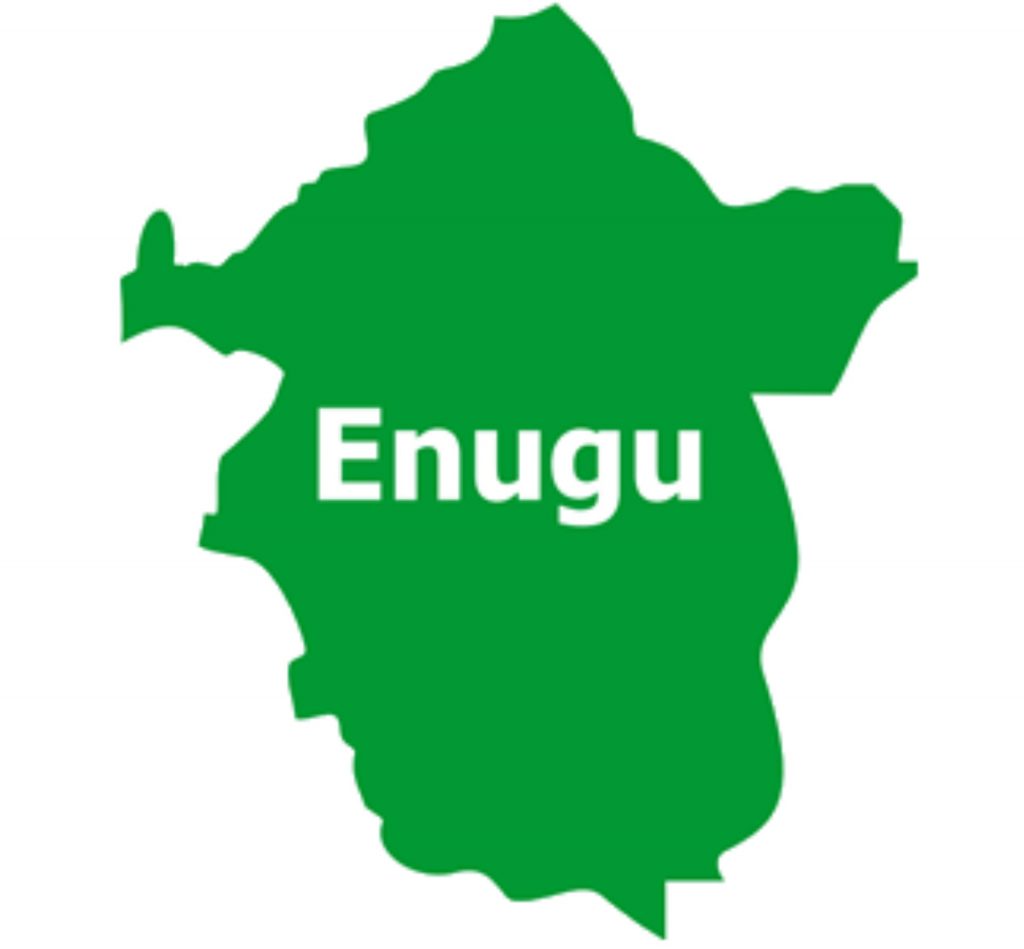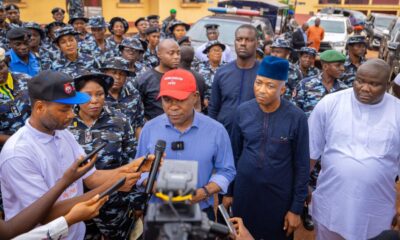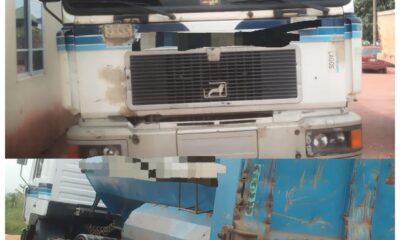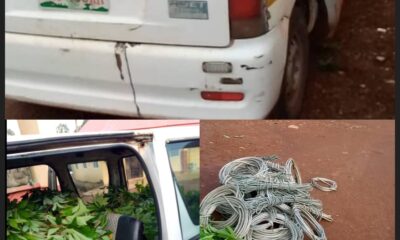The Nigeria Police Command in Enugu State has taken inventory of the demolished buildings at Nkomoro Onuogba Nike community, Enugu East Council Area, the community’s President-General, Okechukwu Onele, has told newsmen in Enugu.
Mr. Onele who accused the former Minister of Power, Prof Barth Nnaji, of pulling down over 150 houses from the community said the land does not belong to him, neither was he a joinder in the land suit between the community and one Titus Alinta.
“The police are here today to take inventory of damage done to us by Nnaji who claimed that he bought the land from Alinta. This is because we wrote to police that the matter was in court and Nnaji is demolishing our houses.
“We have lived there for almost 70 years and Nnaji claimed to have bought the land when the suit about ownership of the land between us and Alinta is pending in court
“Alinta sold the land to Nnaji because he (Nnaji) has resources and power to chase us away from our ancestral land,” he said.
The president-general explained that when demolition started in September 2024, the community complained to the police who stopped Nnaji from entering the land until court gives final judgement on the matter.
“Now, we started hearing that he want to come again to the land. That is why we went back to the police to stop it.
“He should wait for court to give its judgment and shouldn’t take laws into his hands because he is not a joinder in the case,” he said.
Recalled that when the demolition took place in September last year, a representative of the community, Rev. Stephen Itumo, told newsmen that Nkomoro Onuogba community migrated from Ezza in Ebonyi State.
He said the community had land dispute with Onuogba community who then, sold the land to Alinta whom Nnaji claimed to have bought the land from.
Rev. Itumo narrated how they migrated to Enugu State, saying, “Nkwubor people, a neighbouring community, had land dispute with Onuogba Nike around 1958 that made Onuogba Nike people to approach my people in Ebonyi State who were warriors to help them defeat Nkwubor people.
“We came, fought the war and defeated their enemies which made them to settle our forefathers with this land after a written agreement and oath taking”.
But reacting to the demolition then, during a press conference, Nnaji refuted the allegations.
Speaking through his lawyer, Benjamin Nwobodo, the former minister said the claim by the Nkomoro Community that they owned the parcel of land was incorrect.
He said the Nkomoro people were tenants to the Onuogba Nike Community, the original owners of the land.
Nnaji explained that, in 2005, he bought the parcel of land from Mr Alinta who had purchased the land from Onuogba Community in I977.
The former minister said he acquired the land to build a manufacturing industry and power project.
He recalled Mr Alinta, now late, had faced resistance from the people of the Nkomoro Community when he began farming on the land, which was a virgin land.
The former minister narrated how Mr Alinta, instituted a suit against the Nkomoro Community and won at the Enugu State High Court in 2004 and a subsequent appeal at the Court of Appeal in Enugu the following year.
Another resistance
Mr Nnaji said when he entered the land to “exercise act of ownership,” Nkomoro Community appealed against the Court of Appeal judgement and asked for a stay of its execution
“The court looked at it and saw that there was no merit in their appeal for a stay of execution and the court dismissed the appeal (in 2011),” he said.
The former minister said the community again appealed the judgement “to delay my enjoyment of the property.”
Nnaji argued that the appeal by the community, which they allegedly abandoned, did not get any order staying the execution of the previous court judgements.
The former minister claimed that the community later began to sell parts of the land to strangers.
He said he appealed to the community to stop the illegal sale but they ignored the appeal.
Nnaji said he offered to pay N1 million each to those who illegally purchased parts of the land from the Nkomoro people, but they declined, which prompted him to move into the land to take possession of it.
“The action (taking over the land and demolishing structures in the area) is not illegal because it is in compliance with the court ruling,” he stated.
He added that the parcel of land being contested by the Nkomoro Community was not part of the land which the Onuogba Community gave to them to settle in.


 NEWS2 years ago
NEWS2 years ago
 MUSIC4 years ago
MUSIC4 years ago
 MUSIC4 years ago
MUSIC4 years ago
 MUSIC2 years ago
MUSIC2 years ago






















